This Could Happen to You Without Enough Protein

Maintaining stable blood sugar levels is essential to overall health and well-being. Including protein with every meal is a simple yet effective way to achieve this balance. Studies have shown that higher protein diets can benefit individuals with type 2 diabetes. This is because protein is digested more slowly than carbohydrates, which can prevent sudden spikes and drops in blood sugar levels.
But the benefits of protein go beyond diabetes management. Research has also indicated that balancing blood sugar levels can support cardiac health. So, next time you eat, consider incorporating protein-rich food to stabilize your blood sugar levels and promote optimal health.
This Could Happen if You Don’t Eat Fish

Omega-3 fatty acids found in oily fish are a vital component of a healthy diet, according to research. These healthy fats are crucial for essential bodily functions, such as gene expression, cell signaling, and the development of the brain and eyes.
Studies have also suggested that a diet rich in omega-3 fatty acids may help lessen the risk of cardiovascular disorders. They decrease blood pressure, lower triglyceride levels, and reduce the risk of abnormal heart rhythms. Moreover, research has indicated that the anti-inflammatory properties of omega-3 fatty acids may be effective in managing the early stages of diseases like Alzheimer's and Parkinson's.
This Could Happen if You Don’t Eat Whole Grains
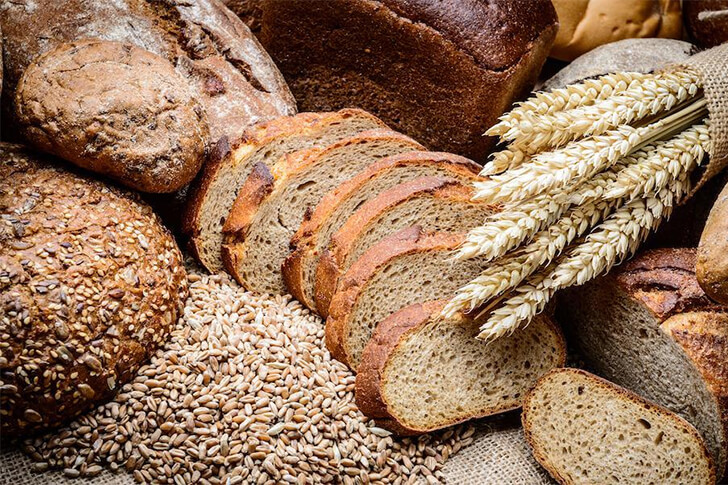
The American Heart Association (AHA) recommends that individuals consume whole grains instead of refined grains for optimal health. Unlike refined grains, whole grains are packed with essential nutrients such as B vitamins, fiber, and iron, vital for various body functions. For instance, B vitamins are crucial for carrying oxygen in the blood, while iron is necessary for regulating the immune system.
Additionally, the fiber in whole grains is critical for balancing blood sugar levels and promoting healthy digestion. You can reap these numerous benefits and support your overall health and well-being by incorporating whole grains like brown rice, quinoa, and whole-wheat bread into your diet.
This Could Happen if You Eat a Variety of Plants
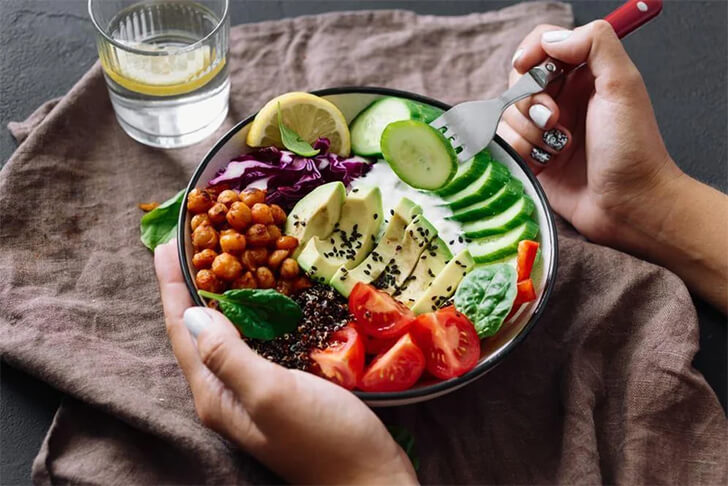
"Eat the rainbow" is a famous saying encouraging people to eat various colored fruits and vegetables. This practice is essential because it ensures that individuals receive a wide range of health-boosting antioxidants in plant foods, such as carotenoids and anthocyanins. These antioxidants are vital for maintaining excellent health and protecting the body from damage.
Carotenoids, for example, are responsible for the orange and yellow hues of fruits and vegetables like carrots and sweet potatoes and have been linked to improved eye health and reduced cancer risk. Meanwhile, anthocyanins in berries and grapes have been shown to support heart health and brain function.
This Could Happen if You Don’t Get Enough Folate
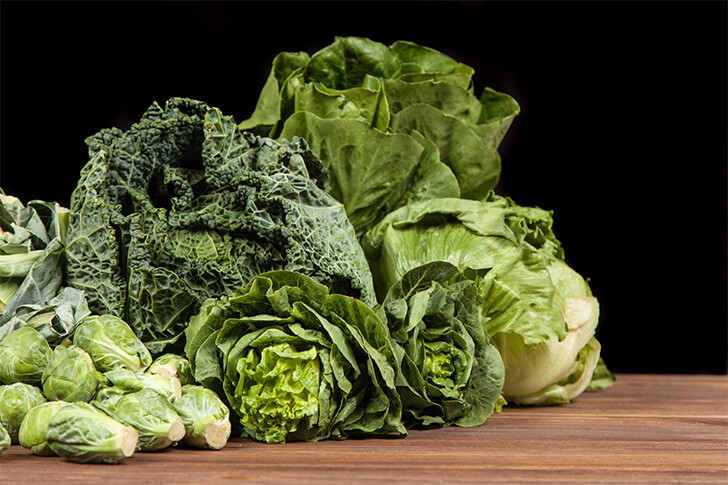
When it comes to nutrition, dark green leafy vegetables are a powerhouse of essential nutrients, according to the Department of Agriculture (USDA). Leafy greens, such as kale, spinach, and collard greens are packed with vitamins, minerals, and antioxidants.
According to the USDA, these nutrient-dense foods are particularly beneficial for their high folate content, which may help prevent cancer. Additionally, the vitamin K found in leafy greens has been shown to support bone health and prevent osteoporosis. So, by adding dark green leafy vegetables to your diet, you can enjoy a wealth of essential nutrients that are critical for maintaining good health.
This Could Happen if You Eat Saturated Fats

The United States Department of Agriculture (USDA) recommends that individuals limit their intake of saturated fats. Saturated fats are known to raise cholesterol levels and increase the risk of heart disease. Instead, the USDA suggests replacing these unhealthy fats with healthier unsaturated fats in foods such as avocados, oily fish, nuts, and vegetable oils.
These unsaturated fats have been shown to improve cholesterol levels and support heart health. By swapping out saturated and trans fats for healthier alternatives, individuals can reduce their risk of developing heart disease and other chronic health conditions. Just a little switch can significantly impact one's cardiovascular health!
This Could Happen if You Don’t Drink Enough Water

Staying hydrated is crucial for overall health, and drinking enough water can even help with weight management, according to the Centers for Disease Control and Prevention (CDC). Dehydration can be especially dangerous for older adults, making consuming enough water throughout the day essential.
While plain water may not be everyone's preferred beverage, there are plenty of ways to make it more appealing. Adding citrus slices and mint leaves can give water a refreshing twist, or try incorporating herbal teas for added flavor and hydration. With so many benefits to staying hydrated, it's worth finding ways to make water consumption more enjoyable.
This Could Happen if You're a Coffee Lover

According to a 2017 Turkish study, moderate coffee consumption of three to five cups per day has been linked to a reduced risk of various health conditions, including type-2 diabetes, Alzheimer's disease, Parkinson's disease, and cardiovascular diseases. This may be partly due to the presence of antioxidants and other beneficial compounds in coffee.
However, it's worth noting that pregnant and lactating people are advised to limit their coffee intake to two cups per day. With its numerous potential health benefits, coffee can be a great addition to a healthy diet for those who enjoy it. As with all foods and beverages, moderation and balance are key.
This Could Happen if You Love Tea

In addition to their hydrating benefits, herbal teas are also rich in antioxidants and other beneficial compounds. Research suggests that catechins, which are found in green, black, and other herbal teas, may have antimicrobial properties. This means that they could potentially help fight off harmful bacteria and viruses in the body.
Some popular caffeine-free herbal teas include mint, peppermint, chamomile, hibiscus, and rooibos, each coming with its own unique flavor and potential health benefits. For those looking to cut back on caffeine or simply add more variety to their daily beverage routine, herbal teas are a great option to consider.
This Could Happen if You Consume Sugar Daily
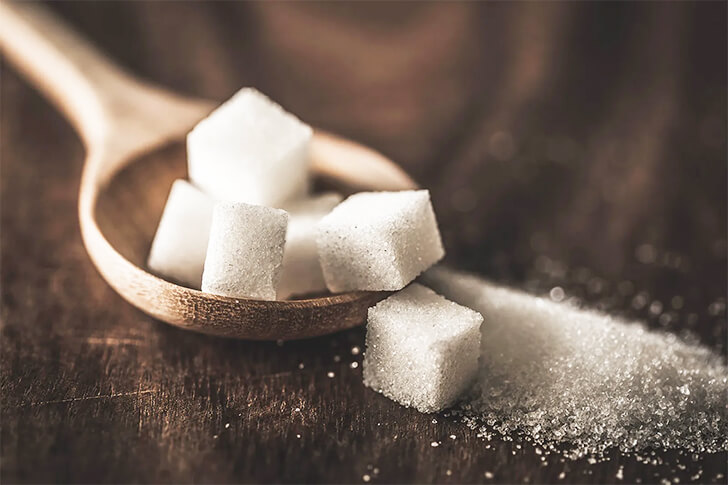
Excessive sugar consumption can negatively affect our health, particularly cardiovascular health and metabolic syndrome. While natural sugars like honey and maple syrup might sound like healthier alternatives to processed sugars, they still contain calories and can lead to weight gain if consumed in excess.
To avoid hidden sugars in foods, it's important to read food labels and look out for ingredients that end in "-ose," such as fructose, sucrose, and glucose. Instead of consuming processed sugars, people can try natural sweeteners like stevia, monk fruit, or even fresh fruit. Making small changes to reduce sugar intake can significantly improve overall fitness.
This Could Happen if You Drink Alcohol

Moderate alcohol consumption may have some benefits, such as a lower risk of heart disease and diabetes, according to some studies. However, excessive alcohol consumption can adversely affect both physical and mental health, as well as social and occupational functioning.
It is important to note that one drink does not mean one type of drink, as different alcoholic beverages contain varying amounts of alcohol. Additionally, people with certain health conditions or who take certain medications should not drink alcohol at all. Overall, it is essential to drink responsibly and be aware of the potential risks and benefits associated with alcohol consumption.
This Could Happen if You Eat Red Meat

A study published in the British Medical Journal revealed that high red and processed meat consumption can increase adult mortality rates. However, the study also offered a solution: swapping meat for other protein sources, such as fish, nuts, and eggs. These alternatives not only lower the risk of death but also provide essential nutrients such as omega-3 fatty acids and fiber.
Cutting down on red and processed meat has also been linked to a lower risk of chronic diseases such as heart disease and cancer. Making small changes here and there in diet choices can lead to significant long-term benefits.
This Could Happen if You Like Processed Food
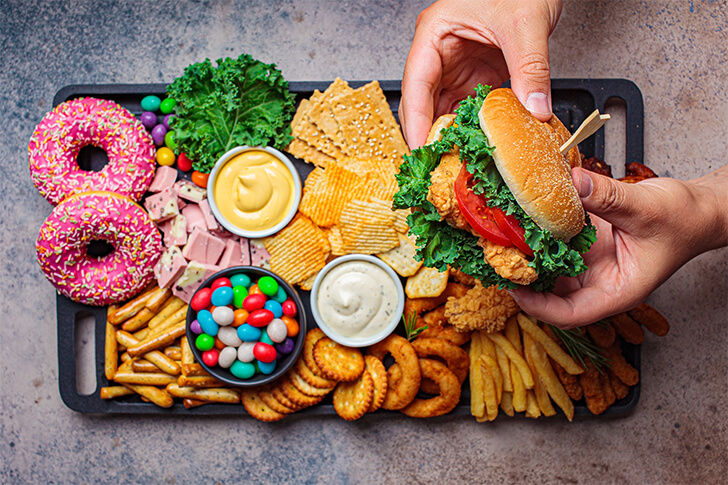
Ultra-processed foods are typically high in calories, sugar, salt, and unhealthy fats and low in nutrients. A 2019 study published in JAMA Internal Medicine revealed that people who consumed more ultra-processed foods had a higher chance of mortality than those who ate minimally processed foods. This is because ultra-processed foods can disrupt hormone signaling and lead to overeating.
Consuming whole foods, such as fruits, vegetables, whole grains, lean proteins, and healthy fats, can provide the body with the essential nutrients it needs for overall soundness. Additionally, meal prepping and cooking at home can help reduce the consumption of processed foods.
This Could Happen if You Overeat Carbs

The microbiome is a collection of microbes that inhabit the human body, and a growing body of research highlights its importance in overall health. A healthy microbiome can improve digestion, strengthen the immune system, and potentially reduce the risk of certain diseases.
According to a 2019 review in Nutrients, a balanced and high-quality diet supports microbial diversity and can positively impact good bacteria. The review suggests that including various vegetables and fiber-rich foods can be particularly beneficial, while consuming too many refined carbohydrates and sugars may harm the microbiome. Overall, this research emphasizes the importance of dietary choices in maintaining a healthy culture.
This Could Happen to You Without Sunlight

Vitamin D is crucial in maintaining healthy bones, muscles, and the immune system. However, many people worldwide have a vitamin D deficiency. The skin produces vitamin D when exposed to sunlight, but many factors can affect this process, including skin color, time of day, and use of sunscreen.
Some food sources of vitamin D include fatty fish, egg yolks, and fortified dairy products. Supplementation with vitamin D may be necessary for those who do not get enough sunlight and food sources. The appropriate dosage depends on individual factors, such as age and health status, but a dose of 15 micrograms per day is recommended for adults.
This Could Happen if You don't Control Portions

Portion control is a crucial component of a healthy diet. Being mindful of how much you eat can help you avoid overeating and better understand your body's needs. The USDA provides guidance on portion sizes for different food groups, including fruits, vegetables, grains, and proteins.
For example, a serving of vegetables is about one cup of raw or cooked vegetables or vegetable juice, while a serving of grains is about half a cup of cooked rice, pasta, or cereal. Remembering portion sizes may vary depending on cultural or personal preferences is essential, but being aware of the recommended guidelines is a great starting point.
This Could Happen if You Like Spicy Food

In addition to adding flavor to meals, herbs and spices can also provide health benefits. For instance, research has shown that rosemary may improve memory function, while cinnamon may help regulate blood sugar levels. Basil contains flavonoids that have antioxidant properties, and oregano has been found to have anti-inflammatory and antimicrobial effects.
Saffron, a spice derived from the Crocus sativus flower, has been shown to have antidepressant effects and may also improve symptoms of premenstrual syndrome. Including a variety of herbs and spices in meals not only enhances the taste but can also contribute to a healthier diet and lifestyle.
This Could Happen if You do Intermittent Fasting
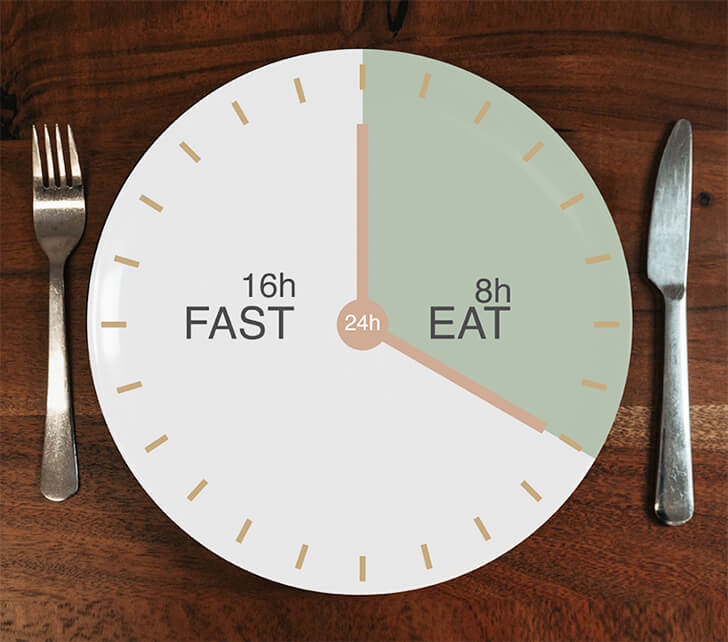
Intermittent fasting has been gaining popularity as a weight loss and health-promoting method. It involves cycling between periods of fasting and eating. Some people may restrict their eating to a specific time window each day, while others may fast for entire days. Research suggests intermittent fasting may have several health benefits, including improving insulin sensitivity and reducing inflammation.
A 2020 review indicates that it may also have a positive effect on heart health by improving blood pressure and cholesterol levels. However, it is crucial to approach intermittent fasting cautiously, especially if you have certain health conditions or are pregnant or breastfeeding.
This Could Happen if You Don't Wash Produce

Properly washing fresh fruits and vegetables can reduce the risk of foodborne illness caused by harmful germs. The CDC recommends rinsing them under running tap water and rubbing them with clean hands or a brush. Even if the produce will be peeled, like melons or oranges, washing them first is still important to prevent bacteria from transferring inside.
In addition to washing, storing and handling fresh produce properly is essential. Keeping fruits and vegetables separated from raw meat, poultry, and seafood can help prevent cross-contamination. And refrigerating perishable produce, like leafy greens and berries, can help keep them fresh and safe to eat for longer.
This Could Happen if You Microwave Food

While the convenience of microwaving food in plastic containers is hard to beat, it may come at a cost to our health. Research indicates that certain chemicals in plastic containers, such as phthalates, can be released into our food when heated, potentially disrupting our hormonal balance.
Fortunately, there are safer alternatives to consider when microwaving food. Glass and ceramic containers are microwave-safe and do not contain harmful chemicals that could leach into our food. By heating up our meals in these types of containers, we can avoid potential health risks associated with plastic and still enjoy the convenience of microwaving.
This Could Happen if You Eat Chia Seeds
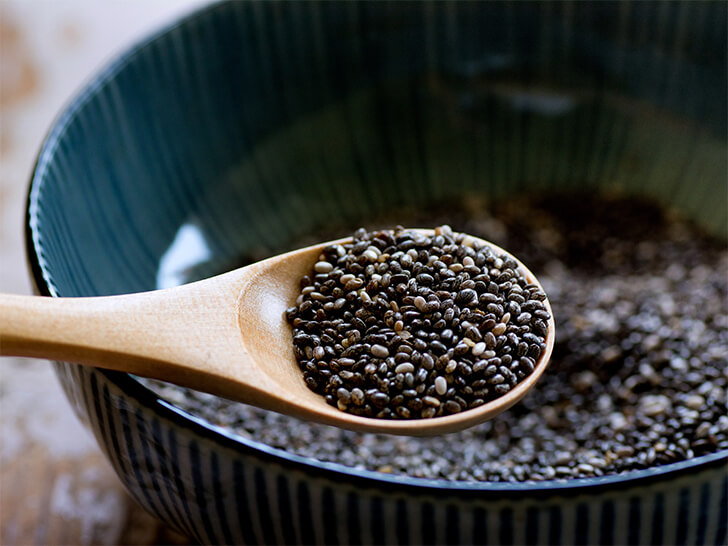
Chia seeds have been dubbed a superfood for their nutritional benefits. With a high fiber content and rich in antioxidants, these tiny seeds deserve their popularity. They can be easily incorporated into various meals and snacks, such as smoothies or plant milk puddings, adding a unique texture and nutty flavor.
In addition to their fiber and antioxidant content, chia seeds are also a good source of plant-based protein, omega-3 fatty acids, and minerals such as calcium and magnesium. Whether you’re looking to boost fiber intake or add extra nutrients to your diet, chia seeds are a versatile and healthy choice.
This Could Happen if You Improperly Store Berries

While mold on a single strawberry might not always mean that the entire box is spoiled, it's essential to be careful with moldy produce. According to the FDA, mildew can quickly spread through fruits and vegetables, leading to the growth of unseen bacteria and toxins. Ingesting these toxins can cause severe illness, so it's best to err on the side of caution.
However, don't throw the entire box away if you spot mold on one piece of fruit. Inspect the rest of the produce; you can still consume it if it appears mold-free. To prevent mold from developing, store fruits and vegetables correctly.
This Could Happen if You Use Matcha Daily
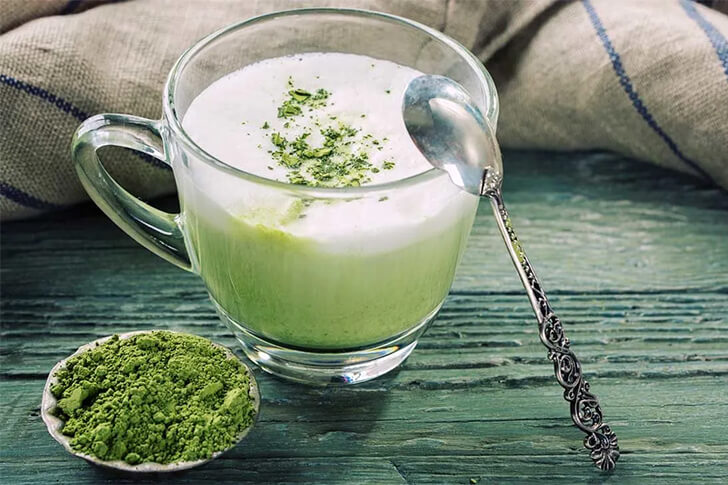
Matcha, a finely ground green tea powder, has been popular among tea drinkers. While it may not be a magic health food, matcha does have some potential benefits. One of these benefits is its high antioxidant content, which can help protect the body against oxidative stress and inflammation.
Matcha also contains caffeine, which may help improve focus and energy levels. Unlike traditionally brewed tea, matcha is made by consuming the entire tea leaf, which may provide additional nutrients. Additionally, it can be used in various recipes, such as lattes, smoothies, and desserts, making it a versatile ingredient in the kitchen.
This Could Happen if You Don't Watch What You Eat
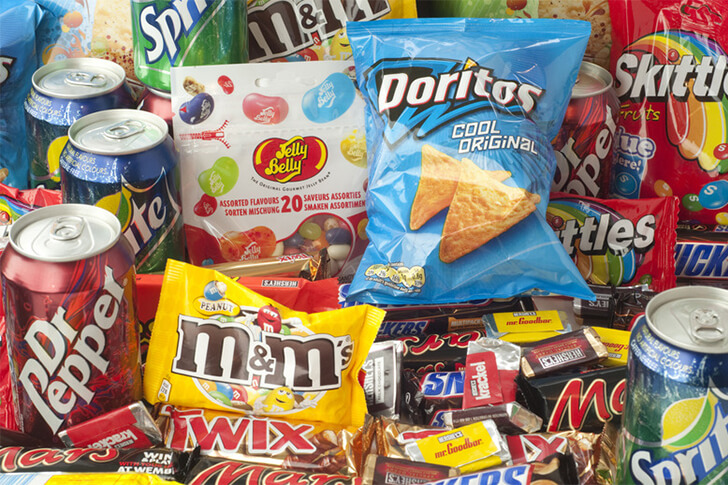
Regular consumption of sugary foods and drinks can have a devastating effect on dental health. The bacteria in the mouth feed on sugar and produce acids that erode tooth enamel, leading to cavities and gum disease. To prevent tooth decay, limiting the intake of sugary foods and beverages is essential.
Drinking water instead of soda or sports drinks can help wash away any sugar lingering in the mouth. Chewing sugar-free gum can also promote saliva production, which neutralizes acids and helps remineralize teeth. Finally, regular dental check-ups and cleanings can help catch and treat dental problems before they become serious.
This Could Happen if You Don't Get Enough Sleep

Quality sleep plays a crucial role in maintaining good health. Research has shown that insufficient sleep can lead to several adverse effects on the body, including impaired insulin resistance, disrupted appetite hormones, and reduced mental and physical performance. Moreover, poor sleep is a significant risk for weight gain and obesity.
Sleep-deprived individuals tend to make poor food choices which can lead to unwanted weight gain. To promote quality sleep, establish a regular sleep schedule and avoid consuming caffeine and alcohol close to bedtime. Additionally, relaxation techniques, such as deep breathing or meditation, can help calm the mind and prepare the body for restful sleep.
This Could Happen if You Char Meat

Cooking meat is a favorite pastime for many, but did you know cooking it at high temperatures can produce harmful compounds linked to cancer? It's true, and that's why experts recommend limiting the intake of processed meats and avoiding charring or burning meat when cooking.
The compounds, known as heterocyclic amines (HCAs) and polycyclic aromatic hydrocarbons (PAHs), are formed when meat is cooked at high temperatures or over an open flame. HCAs and PAHs have been linked to various cancers, including colon, stomach, and pancreatic cancer. So, to reduce the risk, it's best to cook meat at lower temperatures and for shorter periods.
This Could Happen if You Use Digital Devices

Our modern lifestyles often involve spending long hours in front of digital screens, which emit blue light wavelengths that can interfere with producing the sleep hormone melatonin. This disruption can make it harder for us to fall asleep and stay asleep, leading to sleep deprivation and other health problems.
However, there are simple steps to reduce your exposure to blue light. One effective strategy is to wear blue light-blocking glasses, which filter out harmful wavelengths. Another helpful tip is avoiding digital screens for at least 30 minutes before bedtime, allowing your body to produce melatonin and promote better sleep naturally.
This Could Happen if You Don't Exercise

Incorporating aerobic exercise into your routine is a smart move for both mental and physical well-being. Not only does it boost cardiovascular health, but it also helps to reduce belly fat—the type of fat that accumulates around the organs and can increase the risk of chronic diseases.
By shedding belly fat through regular cardio workouts, you may experience improvements in your metabolic health, including lower blood sugar and cholesterol levels. The Physical Activity Guidelines for Americans suggest aiming for at least 150 minutes of moderate-intensity aerobic activity each week. This can include activities such as brisk walking, jogging, cycling, or swimming.
This Could Happen if You Use Extra Virgin Olive Oil

Now that we know unsaturated vegetable fats are healthier than saturated lipids, let's look at one of the best choices among vegetable oils. Extra virgin olive oil is a flavorful and healthy addition to any diet. Packed with heart-healthy monounsaturated fats and antioxidants, it has anti-inflammatory properties that can benefit your overall health.
In particular, studies have shown that consuming extra virgin olive oil may lower your risk of heart disease by reducing inflammation and improving blood vessel function. Some evidence even suggests that regular consumption of this product may lower the risk of dying from heart attacks and strokes.
This Could Happen if You Don't Lift Weights

Building strength through resistance training can powerfully impact overall health. Not only does it help to tone and strengthen the muscles, but it can also improve metabolic health by enhancing insulin sensitivity and boosting your metabolic rate. Plus, you don't need a fancy gym membership or equipment to get started—bodyweight exercises and resistance bands can provide an effective workout with similar benefits.
The Physical Activity Guidelines for Americans suggest incorporating resistance training into your routine at least twice a week. So, whether you are a seasoned weightlifter or just starting out, make sure to include some form of strength training.
This Could Happen if You Don't Cut Out Trans Fats

Artificial trans fats, often found in processed foods, have long been known to be detrimental to our health. These manufactured fats can lead to inflammation and increase the risk of heart disease. However, thanks to the ban on artificial trans fats in the United States and many other countries, avoiding them has become much more manageable.
While small amounts of naturally occurring trans fats can still be found in certain foods, these are not linked with the same adverse effects as their artificial counterparts. So, read food labels carefully and avoid processed snacks and baked goods containing harmful artificial trans fats.
This Could Happen if You Follow a Diet Plan
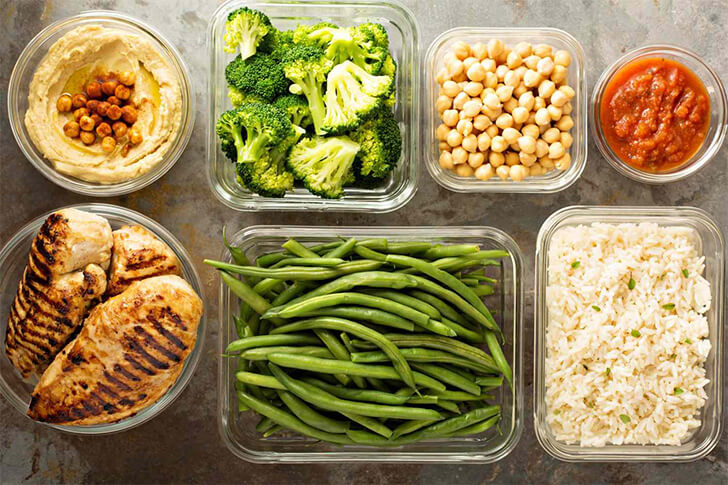
The diet industry is worth billions of dollars, but the reality is that diets rarely work in the long term. Studies have shown that past dieting is a strong predictor of future weight gain, making it a vicious cycle. Restrictive diets can lower your metabolic rate and disrupt hunger and satiety hormones, leading to cravings for high-calorie, high-sugar foods.
This makes it difficult to sustain weight loss and can lead to "yoyo dieting." Instead, focus on adopting a healthy lifestyle that nourishes your body with whole, nutritious foods. These foods are naturally more filling and contain fewer calories than processed foods.
This Could Happen if You Don't Eat Eggs

Eggs have long been a controversial food item, with conflicting opinions about their health benefits. However, the belief that eggs are bad for you due to their cholesterol content is nothing but a myth. In fact, studies have shown that the impact of eggs on blood cholesterol is negligible in most people, and they are an excellent source of protein and essential nutrients.
A comprehensive review involving over 260,000 people found no association between egg consumption and an increased risk of heart disease. So, if you're a fan of eggs, there's no need to worry about their impact on your health.
This Could Happen if You're Stressed Daily

Stress is a silent killer that can wreak havoc on your health. It can impact everything from blood sugar levels to food choices and even your susceptibility to sickness. That's why it's crucial to find healthy ways to manage stress, and meditation is one such method that has gained popularity in recent years.
Scientific studies have also shown that meditation can effectively manage stress and improve overall health. For instance, a study involving 48 people with high blood pressure and type 2 diabetes found that meditation helped reduce LDL (bad) cholesterol and inflammation while also improving mental and physical wellness.
This Could Happen if You Don't Eat Breakfast

Starting the day with a healthy and nutritious breakfast is essential for maintaining a balanced diet and keeping your energy levels up throughout the day. Not only can a hearty breakfast provide the necessary fuel to power through the morning, but it can also help you achieve the daily recommended intake of fruits and vegetables.
Incorporating a variety of fruits and vegetables into your breakfast can be a simple and effective way to meet the 5-a-day target. Furthermore, choosing breakfast options rich in fiber, such as whole-grain cereals and oatmeal, can help support healthy digestion and keep you full for longer.
This Could Happen if You Lack Self-control

A well-balanced diet is not just about cutting out certain foods or food groups; it's about understanding each type of food's role in our health. While all foods can have a place in our diet, it's essential to differentiate between the types of foods we consume regularly and those we enjoy only occasionally.
Foods rich in essential nutrients, such as fruits, vegetables, and lean proteins, should comprise the bulk of our daily diet. However, there's no need to eliminate occasional treats like cakes and pastries, as they can provide us with enjoyment and satisfaction. We can make informed choices by understanding the difference between "every day" and "occasional" foods.
This Could Happen if You're Vegan
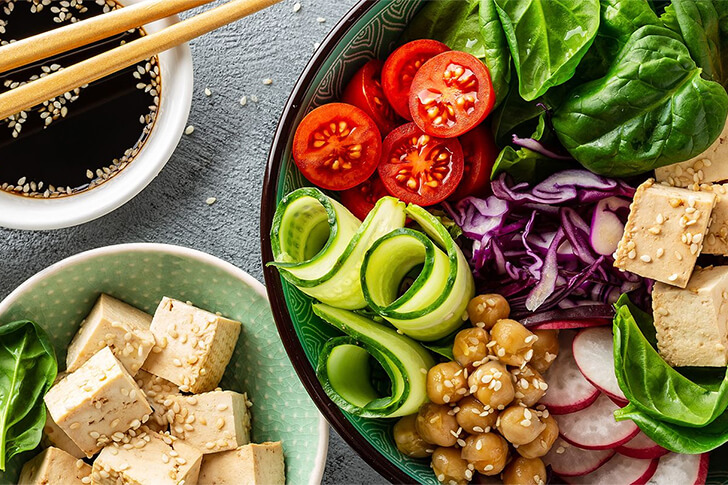
Vitamin B12 is an essential nutrient that plays a vital role in the body's optimal health. However, as it is predominantly found in animal-based products, those following a vegetarian or vegan diet can be at risk of deficiency. Fortunately, there are plenty of vegetarian-friendly sources of B12 that can help to ensure adequate intake.
Foods such as fortified breakfast cereals, eggs, and dairy products can all provide significant amounts of this essential vitamin. For those who enjoy a savory spread, yeast extracts like Marmite can also be a great source. Vegetarians and vegans can maintain healthy vitamin levels by incorporating these foods into their diets.
This Could Happen if You Don't Get Enough Iron
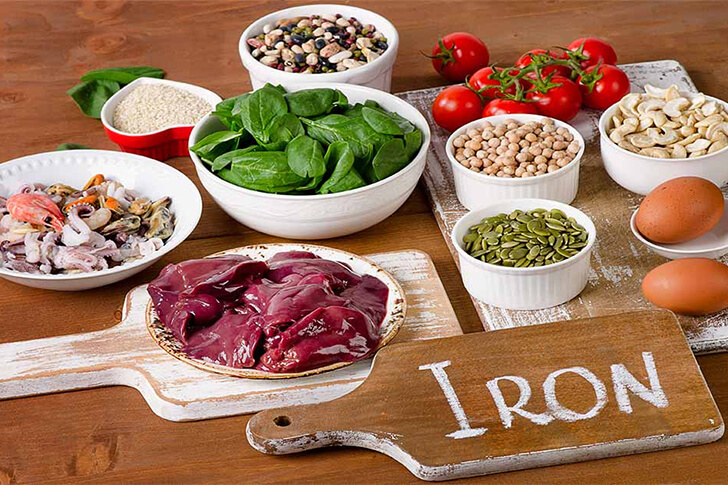
Iron is an essential mineral to maintain our health. Still, vegetarians and vegans might have some difficulty in reaching their daily intake goals. While meat sources of iron may be more easily absorbed by the body, there are plenty of vegetarian-friendly foods that can provide this essential nutrient.
Dark-green leafy vegetables, pulses, wholemeal bread and flour, fortified breakfast cereals, soya products, nuts, and dried fruit, such as dates and apricots, are all excellent vegetarian sources of iron. However, it is essential for vegetarians, especially women, to be mindful of their iron intake, as they may require more than their meat-eating counterparts.
This Could Happen if You're Lactose Intolerant
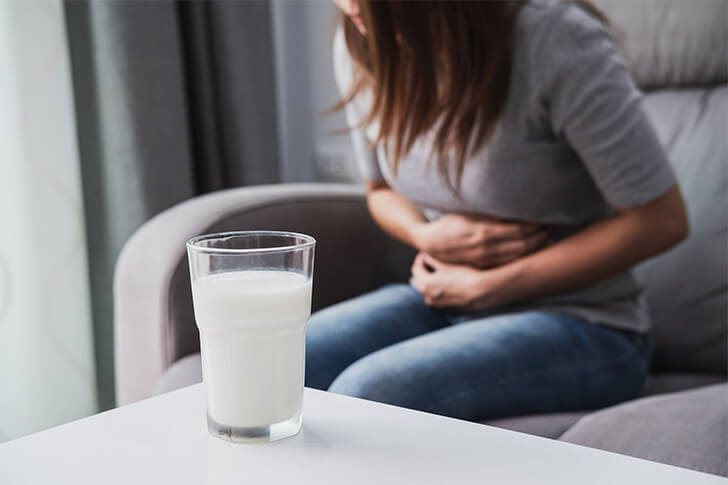
Lactose intolerance can be a common condition that affects many individuals. In severe cases, it may require completely removing lactose from the diet. However, it's essential to ensure that the body still gets the necessary nutrients, such as vitamin D and calcium, typically found in dairy products.
Fortunately, many lactose-free alternatives can provide these essential nutrients, such as fortified cereals, margarine, and non-dairy milk like soya and rice milk. It's important to read the labels and ensure these products are fortified to avoid potential deficiencies. By making simple changes to their diet, those with lactose intolerance can still meet their nutritional needs.
This Could Happen if You're Gluten-free
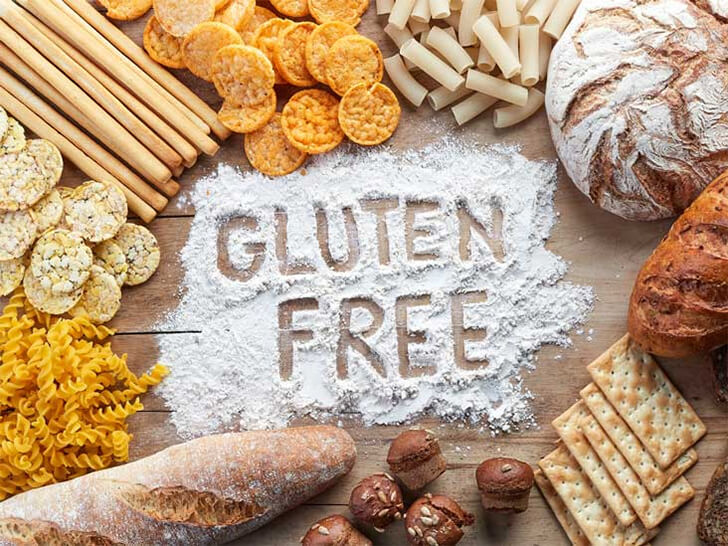
A gluten-free diet can be necessary for those with celiac disease or gluten sensitivity, but it can also be a choice for others seeking to improve their health. Fortunately, plenty of naturally gluten-free foods can be easily incorporated into any diet. Meat, fish, fruit and vegetables, rice, and dairy products like milk, yogurt, and unprocessed cheeses are all excellent sources of essential nutrients that are naturally gluten-free.
Additionally, there are many gluten-free alternatives available for commonly consumed foods that typically contain gluten, such as gluten-free plain flour, bread, and pasta. By incorporating these foods into their diet, those following a gluten-free lifestyle can still enjoy a balanced, nutritious diet.
